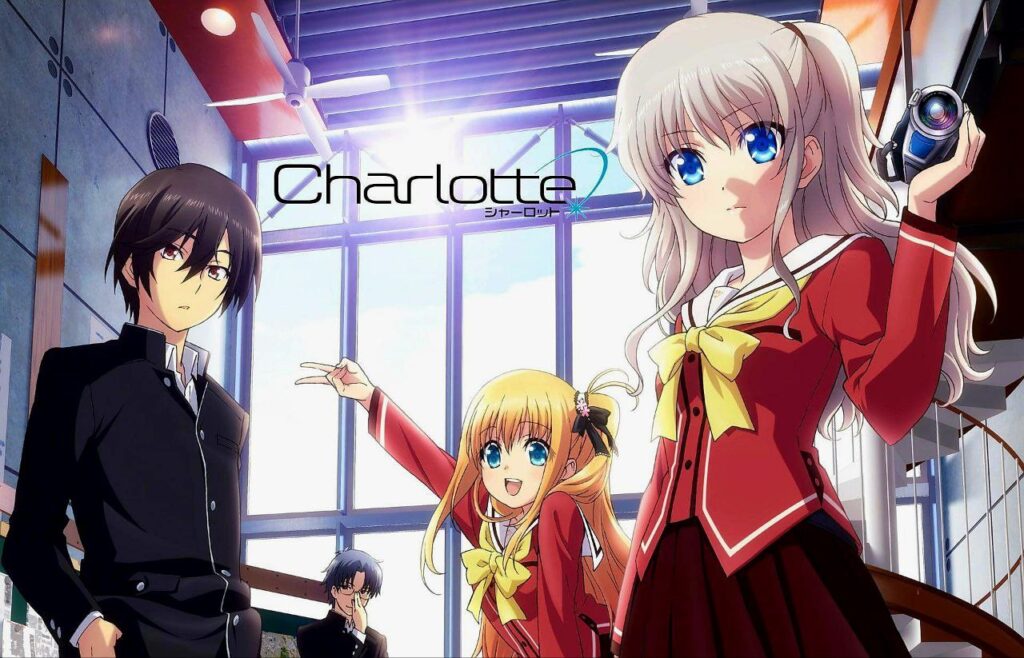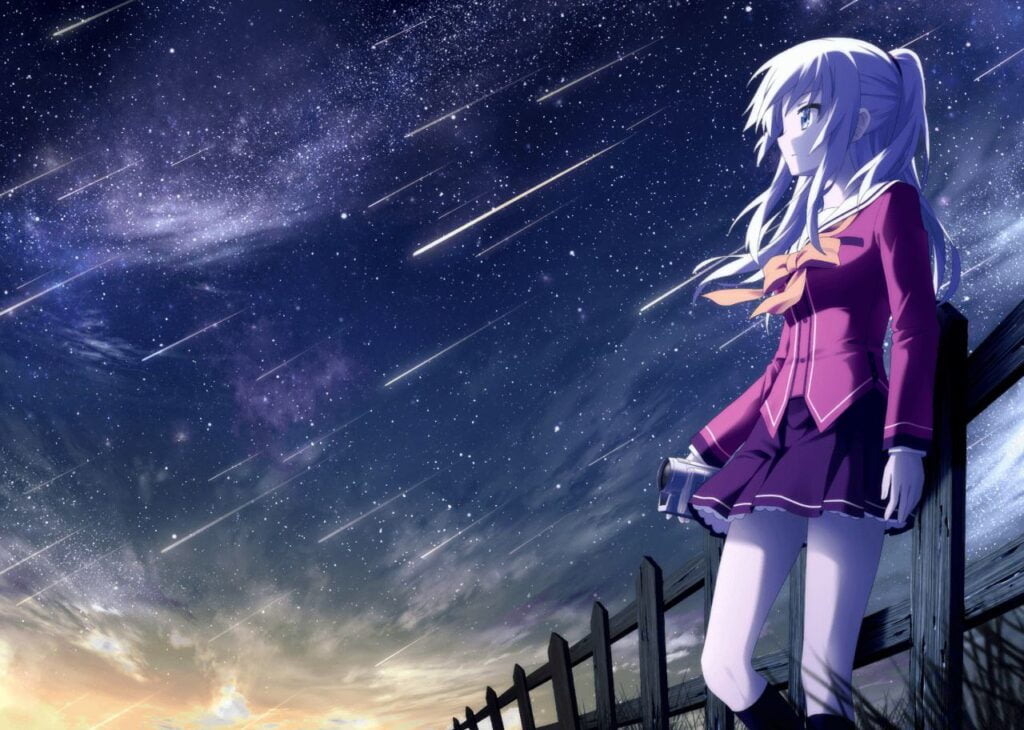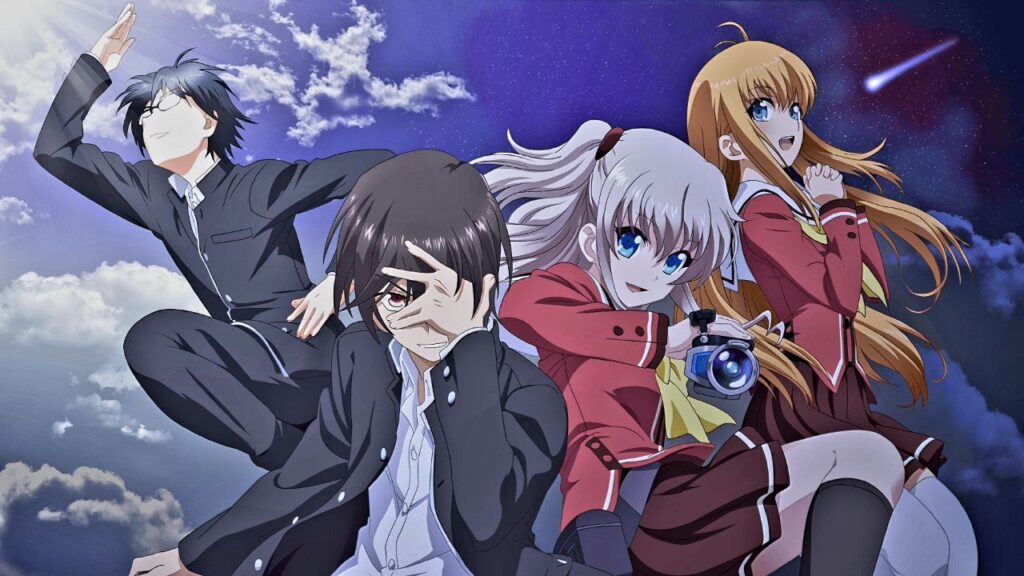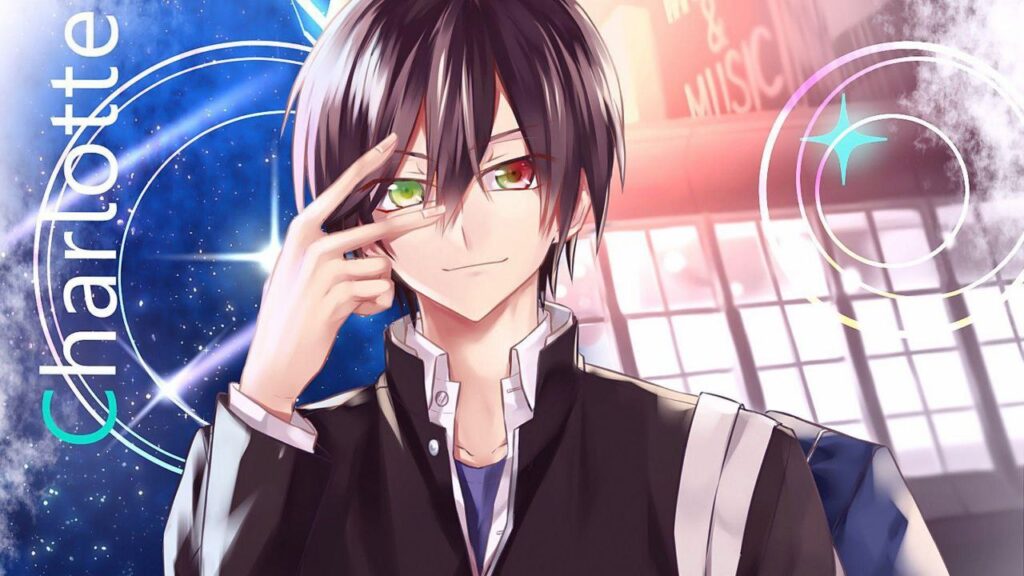
In the realm of anime, where fantastical worlds and complex narratives intertwine, “Charlotte” stands as a shining example of storytelling prowess and emotional depth. Produced by P.A.Works and penned by renowned writer Jun Maeda, “Charlotte” is a series that transcends the boundaries of typical anime, offering viewers a gripping narrative filled with twists, turns, and profound philosophical questions. In this detailed analysis, we delve into the multifaceted world of “Charlotte,” exploring its themes, characters, and impact on the anime landscape.
Plot Overview
“Charlotte” unfolds in a world where a small percentage of adolescents possess supernatural abilities. These abilities manifest during puberty but disappear upon reaching adulthood. The story follows Yuu Otosaka, a high school student with the power of possessing others for a limited duration. Initially, Yuu exploits his ability for personal gain, manipulating others to achieve academic success effortlessly.
However, his mundane existence takes a dramatic turn when Nao Tomori, the student council president of Hoshinoumi Academy, confronts him. Nao possesses the ability to become invisible to a single person at a time, making her a formidable opponent for Yuu’s powers. She coerces Yuu into transferring to Hoshinoumi Academy, a school for students with supernatural abilities, where they recruit others with similar powers to form the student council.
As the series progresses, Yuu and his companions discover the darker implications of their abilities. They encounter individuals who misuse their powers, leading to tragic consequences. The narrative delves into themes of responsibility, morality, and the consequences of unchecked power.
Themes and Motifs
At its core, “Charlotte” explores the complexities of adolescence and the transition to adulthood. The supernatural abilities serve as metaphors for the unique challenges and uncertainties faced during this transformative phase of life. Each character grapples with their own insecurities and desires, mirroring the struggles of real-life adolescents.
Moreover, the series delves into the ethical dilemmas surrounding the use of supernatural powers. As the characters encounter individuals abusing their abilities, they are forced to confront the moral implications of their actions. This exploration of morality adds layers of depth to the narrative, prompting viewers to reflect on their own ethical principles.
Additionally, “Charlotte” explores themes of loss, grief, and the transient nature of human existence. Several characters experience profound tragedies throughout the series, highlighting the fragility of life and the importance of cherishing moments with loved ones. These themes resonate deeply with viewers, evoking a range of emotions from sorrow to hope.

Character Analysis
One of the strengths of “Charlotte” lies in its richly developed characters, each with their own motivations and struggles. Yuu Otosaka serves as the protagonist of the series, initially portrayed as manipulative and self-serving. However, as the narrative progresses, Yuu undergoes significant character development, learning to empathize with others and shoulder the responsibilities of his powers.
Nao Tomori, the student council president, is depicted as stoic and determined, driven by a desire to protect her fellow students. Despite her tough exterior, Nao harbors her own insecurities, particularly regarding her past traumas. Her dynamic with Yuu forms the emotional core of the series, as they navigate the complexities of adolescence and supernatural abilities together.
The supporting cast of “Charlotte” is equally compelling, each contributing to the overarching narrative in meaningful ways. From the enigmatic time-traveler Kumagami to the charismatic musician Yusa Nishimori, each character brings a unique perspective to the story, enriching the overall experience for viewers.

Visuals and Soundtrack
Visually, “Charlotte” is a feast for the eyes, boasting stunning animation and vibrant character designs. P.A.Works’ attention to detail is evident in every frame, from the fluidity of action sequences to the intricate background art. The animation seamlessly complements the narrative, enhancing key moments of tension and emotion.
Complementing the visuals is the evocative soundtrack composed by Jun Maeda himself. Featuring a blend of haunting melodies and upbeat tracks, the soundtrack of “Charlotte” enhances the emotional resonance of each scene. From the melancholic piano ballad “Bravely You” to the uplifting anthem “Rakuen Made,” the music of “Charlotte” leaves a lasting impression on viewers long after the credits roll.
Impact and Legacy
Since its release, “Charlotte” has garnered a dedicated fanbase and critical acclaim within the anime community. Its thought-provoking themes, compelling characters, and stunning visuals have solidified its place as a modern classic in the medium. Moreover, “Charlotte” has inspired countless discussions and fan theories, testament to its enduring impact on viewers.
In addition to its cultural significance, “Charlotte” has also influenced the anime industry at large, paving the way for more nuanced and introspective storytelling. Its success has demonstrated the demand for complex narratives that resonate with audiences on a deeper level, inspiring creators to push the boundaries of traditional anime conventions.

Conclusion
In conclusion, “Charlotte” stands as a testament to the power of storytelling in the realm of anime. Through its exploration of adolescence, morality, and the human condition, the series captivates viewers with its intricate narrative and compelling characters. With its enduring legacy and profound impact on the anime landscape, “Charlotte” continues to be celebrated as a masterpiece of the medium, leaving an indelible mark on all who experience its enigmatic world.
FAQ
- What is “Charlotte” about? “Charlotte” is an anime series that follows the story of Yuu Otosaka, a high school student with the power to possess others, and his encounters with other adolescents who possess supernatural abilities. Together, they navigate the complexities of adolescence while grappling with the ethical implications of their powers.
- Who created “Charlotte”? “Charlotte” was produced by P.A.Works, a renowned anime studio, and written by Jun Maeda, a celebrated writer known for his work on other popular anime series such as “Angel Beats!” and “Clannad.”
- What themes does “Charlotte” explore? “Charlotte” delves into a variety of themes, including adolescence, morality, loss, and the transient nature of human existence. The series prompts viewers to reflect on the ethical dilemmas surrounding the use of supernatural powers and the importance of cherishing moments with loved ones.
- What makes “Charlotte” stand out from other anime series? “Charlotte” distinguishes itself through its richly developed characters, thought-provoking themes, and stunning visuals. The series offers a compelling narrative that resonates with viewers on a deeper emotional level, making it a standout within the anime landscape.
- Is “Charlotte” suitable for all audiences? While “Charlotte” is generally suitable for a teenage and adult audience, it does contain some mature themes and intense scenes that may not be suitable for younger viewers. Additionally, viewer discretion is advised for those sensitive to depictions of loss and grief.
- What is the legacy of “Charlotte” within the anime community? Since its release, “Charlotte” has garnered a dedicated fanbase and critical acclaim within the anime community. Its enduring legacy has inspired countless discussions, fan theories, and artistic creations, solidifying its status as a modern classic in the medium.
- Is there a soundtrack available for “Charlotte”? Yes, “Charlotte” features an evocative soundtrack composed by Jun Maeda himself. The music of “Charlotte” enhances the emotional resonance of each scene, featuring a blend of haunting melodies and uplifting tracks that leave a lasting impression on viewers.
- Has “Charlotte” influenced the anime industry? Yes, “Charlotte” has had a significant impact on the anime industry, inspiring creators to explore more nuanced and introspective storytelling. Its success has demonstrated the demand for complex narratives that resonate with audiences on a deeper level, influencing the direction of future anime productions.